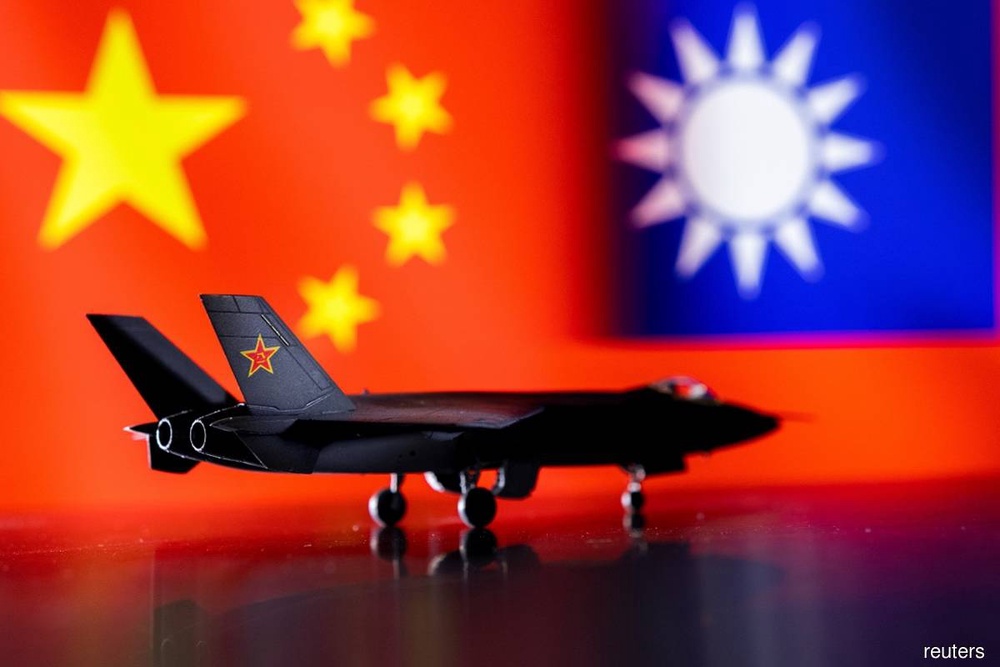Beijing’s recent judicial guidelines pose a threat to Taiwanese advocates of independence, labelling them as ‘diehards’. These guidelines significantly increase the risk for Taiwanese individuals traveling to China, Hong Kong, and Macau. This development marks a new phase in cross-strait relations.
In light of Beijing’s threats to impose the death penalty on staunch supporters of Taiwan’s independence, Taiwan has escalated its travel advisory for China. The advisory now stands at the second-highest level, urging Taiwanese citizens to reconsider any non-essential travel to the mainland.The escalation from “yellow” to “orange” in Taiwan’s four-tier travel alert system was announced in a press release dated June 27 by the Mainland Affairs Council. This cabinet-level agency is tasked with managing Taiwan’s relations with China.It’s worth noting that this heightened travel warning extends beyond the mainland, also covering Hong Kong and Macau.
A “yellow” alert signifies that individuals should give second thoughts to their travel plans. The most severe warning, represented by the colour “red,” advises people to abstain from visiting the specified region.China’s communist government, viewing Taiwan as an integral part of its dominion, frequently labels Taiwanese as “separatists” or “secessionists.” This happens particularly when they voice support for Taiwan’s autonomy or refer to the island as a “sovereign and independent nation.”
On June 21, Beijing rolled out fresh judicial guidelines aimed at those advocating for Taiwan’s sovereignty. These guidelines categorize a range of activities, including advocating for Taiwan’s inclusion in international bodies, as criminal offenses. Chinese courts are granted the authority to prosecute these individuals in their absence, with penalties ranging from extended imprisonment to capital punishment.
Liang Wen-chieh, the deputy head and spokesperson of the Mainland Affairs Council, convened a press conference on Thursday. He announced the revised travel advisory, highlighting that China’s new guidelines “escalate the personal safety hazards for Taiwanese citizens traveling to China, Hong Kong, and Macau.”
Liang further elaborated that the resolution was reached following a “thorough evaluation” by the Taiwanese government. He advised those who are compelled to travel to exercise caution and refrain from certain activities. These include engaging in sensitive political discourse, photographing seaports, airports, or military installations, and possessing books on topics such as politics, history, or religion.
Moreover, Liang strongly recommended that Taiwanese travellers intending to visit China, Hong Kong, or Macau should pre-register their itineraries on the council’s website.Mr. Liang, representing a government agency, emphasized their responsibility to keep the public informed about potential risks. He stated that it’s crucial for the people of Taiwan to be aware of the hazards they might encounter, particularly in the current context of heightened tensions with China. He urged Taiwanese citizens to prioritize their safety and thoroughly consider the implications before deciding to travel. This includes understanding the political climate, being aware of the activities they engage in, and the materials they carry with them. The hope is that with increased awareness and careful consideration, individuals can make informed decisions that prioritize their personal safety.
A week ago, the Mainland Affairs Council voiced its disapproval of the Chinese Communist Party’s (CCP’s) decision through a public statement. The council expressed concern that the new guidelines would only intensify hostility and obstruct the interaction between the people on either side of the Taiwan Strait.
Furthermore, the agency pointed out that Beijing’s decision underscores the glaring disparity between the CCP’s political regime and Taiwan’s free, democratic constitutional system. The new guidelines from Beijing have drawn criticism from the U.S. State Department. “The escalatory and destabilizing language and actions from [CCP] officials are strongly condemned by us. We persistently call for restraint and no unilateral alterations to the existing situation,” stated Matthew Miller, a spokesperson for the State Department, in a briefing on June 24. During the COVID-19 pandemic, Taiwan had issued a “red” travel warning for China starting from Feb. 5, 2020. However, this was later reduced to a “yellow” alert on Oct. 13, 2022.
In response to an inquiry about whether Beijing might attempt to extradite Taiwanese individuals living abroad who are accused by the CCP of promoting separatism, Mr. Liang provided a response. He explained, “The alleged crime of separatism is a political crime. It’s a type of political crime that is unique to China and not recognized by other nations. Hence, we believe that no developed or advanced country will extradite Taiwanese individuals to China for this alleged crime of separatism.”He further added, “Nonetheless, we cannot dismiss the possibility that some countries might be particularly cooperative. Therefore, we still need to caution our citizens to be vigilant,” without specifying any particular countries. Taiwan’s President, Lai Ching-te, has been branded as a “dangerous separatist” by Beijing. In the days following Mr. Lai’s inauguration in May, the CCP initiated military exercises that lasted for two days, encircling Taiwan. These exercises were described as a “punishment” for acts of separatism. On the 25th of June, Mr. Lai had a meeting with a delegation from the U.S.-China Economic and Security Review Commission. Post-meeting, he used social media platform X to underscore the significance of the partnership between the U.S. and Taiwan.He penned, “The importance of our partnership cannot be overstated as Taiwan is subjected to increasing grey-zone aggression from China, which includes diplomatic pressure, economic coercion, cognitive warfare, and lawfare.”

